Ali
Pause Your Life and Return to Center
Emotional Sobriety Tip 2 Pause Your Life And Return To Center — Talk Sober at YouTube.com
I’m going to talk to you about the art of a delay.
You can delay anything with about 15 minutes. So in life, if you have trouble, and things aren’t going your way, remember this. You can stop, take 15 minutes, and end all the cravings. You can do something to start to change the way that you feel. Whether it’s getting up, going for a jog, getting out of your element, reading a book, taking a nap, or eating something healthy.
No matter what, throughout your day, you can always take 15 minutes out, hit that reset button, and return to center. Return to where you want to be. Return to the happy place in life.
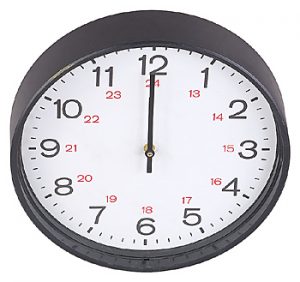
No matter how bad life gets, or no matter how much you want to stop the sobriety thing, you can always push that 15-minute button, pause your life, and take a few minutes out for yourself. Taking care of yourself is the first step to becoming healthy, which in turn allows you to take care of everyone else.
I created a little timer and a little guide to help you with this. So what I want you to do is head over to talksober.com/pause and you can get my pause button. That’s going to help you anytime you feel like you’re stuck or in a jam. It’s going to help you push the pause button on life, return to center, and start to live from a place of gratitude, happiness, and good feelings, rather than a place of dread, regret, and bad feelings.
For more information, visit www.TalkSober.com.
Alcoholic Relapse and Depleted Willpower
Daily Sobriety Tip 1: Alcoholic Relapse And Depleated Willpower — Talk Sober at YouTube.com
Today we have a special sobriety tip for you. While I was reading this book, The One Thing by Gary Keller, I came across something on page 67. He says that there was a study done in 2007 to see if there was a correlation between nutrition and willpower.

Now this is very interesting for the alcoholic and the addict. Alcohol naturally depletes your vitamins and your nutrition, which in turn affects the cognitive function of your prefrontal cortex. That’s basically the part of your brain that’s able to make decisions rationally.
So what’s happening is when you drink over a long period of time, your diet and your health isn’t always that great, which means your cognitive thinking isn’t that great, either. This means that it affects your willpower.
Now, what do you do about this? How is this going to help you?
What we need to do first and foremost is realize that this is happening. Realize that the prefrontal cortex is affected by what you’ve been doing to your body. Once you realize it, you can acknowledge it and say, “Well, this is what’s going on. I might not feel the willpower and I want to give in based on how I feel, but I know that my cognitive functioning has been interrupted by something other than thinking.”
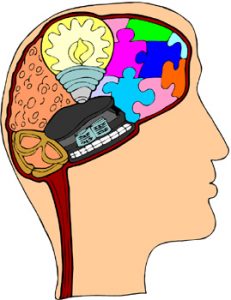
So it’s not necessarily a thinking problem or a willpower problem. It’s a problem of what’s going on in your body and in your mind And if you can know these things, you can combat them. Instead of saying, “I’m weak, I’m terrible, I want to drink again,” you could just simply sit back and say, “Well, it’s pretty normal when I shut down my cognitive functioning that I’m going to have weak willpower.”
The takeaway is to understand that this is going on combat it by activating your prefrontal cortex. You can say, “I don’t need to give into this, because I know it’s just something that’s a flaw in my mind and body that will get better over time.”
For more information, visit www.TalkSober.com.
What Having Anxiety Feels Like
Where Does Anxiety Come From | What Having Anxiety Feels Like — Talk Sober at YouTube.com
Today I want to talk to you about anxiety, where it comes from, and how to deal with it.
Sometimes we get anxiety, and it’s not fun to deal with. It’s not fun to live with. It can be totally disruptive to your life. So let’s talk about where anxiety comes from. Because I think if you understand this, it’s the first step in eliminating it from your life.
Factors that Cause Anxiety
There are several things that are at play here when we talk about anxiety. There are small anxiety things, like the stuff that you eat or drink. For example, sometimes if you have too much coffee, it can affect your anxiety. There’s also situational anxiety, where you might do something that is nerve-wracking or thought-provoking. You might be getting less sleep, or maybe you go off of your antidepressants.
These are all somewhat small things that affect anxiety, and you can usually change them in an easy way. You can get more sleep, or be in more comfortable situations, or figure out your medication schedule, or whatever it may be.
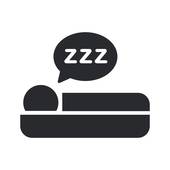
Then there are more complicated things about anxiety. The anxiety I deal with is from past trauma and abuse. There’s something deeper going on with people who have chronic, really debilitating anxiety, which is trauma, past abuse, and different things in their lives.
How the Brain Deals with Trauma
I want to show you how the brain stores memory of trauma. The brain is kind of like a computer.
With computers, you have what’s called a hard drive, and then there are little memory sticks called RAM, or random access memory.
When you’re using your computer, various different windows open up. You might be using Skype, or Facebook, or Microsoft Word, or any number of things. When these things are open, they’re going into your random access memory. The RAM in your computer makes it easy for these things to load.
The hard drive is slow and clunky, and it has a lot of stuff on it. So if you were to run all these just on your hard drive, without the RAM, everything would get slow. And then if you were to push the power button while everything is open, the computer freaks out and shuts down. Then all of these things get scatted all over the hard drive. There’s a fragment of Microsoft Word over here, there’s a fragment of this video over there and it’s all over your hard drive.
So now your hard drive has little bits and pieces and chunks of information all over the place, because it did a hard shutdown instead of closing everything out like you’re supposed to. This is known as a fragmented hard drive.
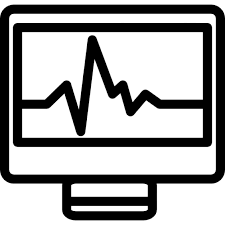
The reason I’m describing this like this is because this is the same thing that happens when someone is traumatized. In order to save the integrity of your brain and to deal with certain circumstances, your brain hits that reset button. It says, “I can’t deal with this. I’m going to fragment it.” And little pieces of this memory go everywhere.
So maybe it was one time you were traumatized, or maybe it was over and over again. But whatever’s happening, instead of a congruent fluid memory of an event, now there are pieces everywhere.
And every little piece is attached to something. So you might have a piece where you saw the facial expression of the person who abused you, and it’s attached to a memory because it’s all fragmented in your brain.
Your senses get data input from the outside world. So you might be walking through life, and you might see someone in a crowd of people. And even though you’re not consciously focusing on it, your brain picks up on the fact that one of those people looks like the person who attacked you.
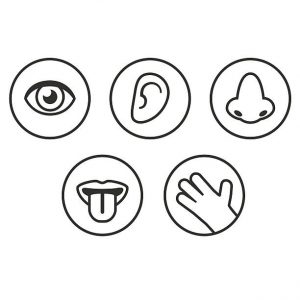
Then all of a sudden you feel anxious, just like you’re in that trauma again. And it feels like you’re going crazy, because you don’t know what’s going on. And the problem is that when many people are traumatized, they have so many of these fragments around their brain that are affecting their daily life. Everywhere they find something, whether it’s in a crowd of people, or watching the news, or reading a book, or talking to someone. Whatever happens, the fragments are triggers, and they trigger these reactions.
You might have triggers that are obvious. Like for me, I used to get yelled at all the time when I was a kid. And now, when people yell, it’s a big trigger. But there are some less obvious ones, like certain things people say and things like that. So we have all these fragmented parts of our brain that are split up, and they’re causing triggers. We touch things, we smell things, we see things, we taste things, we hear things. And this is where the anxiety comes from.
Getting Past Anxiety
The key to getting past anxiety is understanding these fragments and starting to integrate them into normal memory. You need to defragment.
When your fragmented brain has all these pieces in it, it never puts them together and it never integrates them into your memory correctly. It doesn’t register that these events happened in the past, and you’re not there anymore. Your brain can’t separate those things.
Now you can realize this is happening. You can see that it’s just what your brain is doing. It’s not going to kill you. It’s not going to hurt you. It’s just doing what it needs to do. And now that you understand it, you can fight it in a whole new way.
For more information, visit www.TalkSober.com.
How to Deal with Anxiety: Part 1
How To Deal With Anxiety – MUST WATCH if you suffer from anxiety and alcohol problems — Talk Sober at YouTube.com.
Today I want to talk to you about anxiety. I want to share with a story of mine and what I learned from it, so that you can start finding solutions to dealing with your own anxiety.
My Story
When I was first trying to get sober and dealing with anxiety, I went to see lots of therapists. I remember one therapist I had for about a year and a half. She had talked to me about my anxiety and what to do about it, and she tried to teach me mindfulness. She made little recordings of hypnosis stuff so that I could deal with it. And for me, going to therapy was an anxiety provoking thing. I didn’t want to be there, I didn’t want to dive into things, and with her being a hypnotist, I wasn’t sure what she was going to do.
One time I was sitting there, squirming in my seat. And she said, “I have a friend here that runs the local Buddhism meditation class.” And there I was, anxious and wanting results. All I wanted was for her to snap her fingers and just get me out of anxiety.
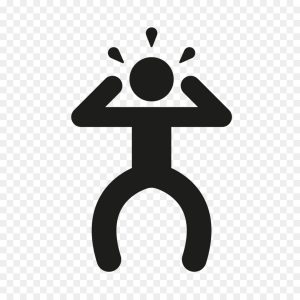
So she brought the guy in. And he had a stutter. Not that there’s anything wrong with stuttering—a lot of people deal with that issue, and I sympathize with them. But as someone with anxiety, I wanted answers fast, and I didn’t have the time in my brain. I hadn’t learned how to listen to people.
So this poor guy came in and tried to teach me about meditation, and relaxation, and mindfulness, and all this stuff. And with me being anxious, wiry, fast thinking all I could think about was, “Would you please tell me the secret? I don’t have time to sit here and listen to you jabber on about all these things.”
I just wanted an answer that would make me able to sit still for two seconds, but nothing seemed to work. I even went to another therapist after this one.
This guy specialized in addiction and recovery, so I signed up for his therapy. I went there, and the first time I met this guy, I was so anxious and I didn’t want to go. I wanted to cancel, but my wife told me I needed to go.
And so I did. Like any good alcoholic would do, I drank before going to therapy. I drank so much that I actually ended up turning the car and bursting a can of beer that sprayed all over my therapy notes.
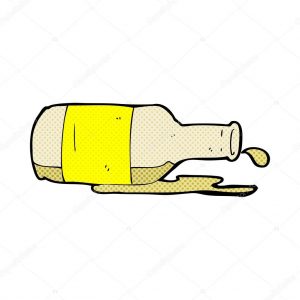
(Disclaimer: Never drink and drive. I should have never done that. That’s not a good thing to do; don’t ever do it. Call uber, get someone to drive you, or just stay home. Cancel your appointment if you have to.)
So there I was, in my car, and I had all my notes. I was ready to go therapy totally not sober. I brought my notes in, stained with beer. If any of you are therapists, you know you’re not supposed to treat someone while they’re under the influence. But this guy treated me.
He said, “The key to anxiety is to go where you’re anxious, and keep going there, and keep going there. And the anxiety level will drop” It was called exposure therapy. The more that I was exposed to my anxiety, the more it would go down.
So here I was. I went to these faith-based recovery meetings, which weren’t working for me because they provoked all of the religion-related anxiety and issues I had growing up. And then there was this addiction counselor who just happened to be part of the big church that I was in, and all he wanted to do was talk about my past as a preacher, even though I was talking about drinking and anxiety and things like that. He was more interested in what I did, and wasn’t that interested in helping me.
Needless to say, I couldn’t sit still in a recovery meeting. I couldn’t sit still in church. At one time I didn’t leave the house for many months, and when I tried, I couldn’t walk. My legs literally gave out, my body gave out. My body wanted to run back home and just go drink.
I was dealing with this anxiety, and all the while, I thought that the key to anxiety was fighting it. So I would sit there in my chair and I’d feel the anxiety, and I didn’t know what it was from or what to do about it. It was so bad that I ended up getting taken to the hospital. I was drinking, I was suicidal, and I was serious about it.
They took me to the hospital. I was anxious at the hospital (because who wouldn’t be anxious at the hospital), and I didn’t have anything to drink, so I was going crazy. Then they took me in an ambulance, and I couldn’t even sit still, and they had me restrained. I was wriggling like a fish. I went down the road looking backwards through the window, feeling so anxious and not knowing what to do.
They pulled up, the doors opened, and all of a sudden, I saw a chair for restraining people. They restrained me and gave me some special non-slip socks.
I was super anxious, so I went outside to get away from everything. I sat down to relax. I noticed in the corner of my eye this lady talking to every blade of grass. She picked up a blade of grass and started yelling at it. It scared the tar out of me.
The next day, I somehow talked them out of making me stay there that night. (That’s how anxious I was—I would have said anything to not sleep there that night.)
I decided I would go to rehab the next day. I went to this place with 30 people who are alcoholics and drug addicts, people who now couldn’t get their alcohol and drugs. So they were angry, because when you stop drinking, you get irritable, and anxiety goes off the charts.

The first night I was there, this guy got mad and kicked a bucket that was supposed to be for cleaning up the kitchen. It went right by my head. That’s when I thought, “Holy crap, I’m going to die here.”
I was there for 30 days. And for 30 days, 24 hours a day, seven days a week, I was anxious. Not anxious like a 1 on a scale of 10—I’m talking 13 on a scale of 5.
Everything was piling up. I thought exposure therapy ought to be working by then. I’d been there 30 days, and I was still anxious. Even after I got sober, I still thought it should be working by that point.
What I Learned
I realized that my anxiety came from these thoughts that were trying to protect me. They were what’s called hintergedanken, as said by Alan Watts. These thoughts are deep down, and they’re there to protect me. All my life I had been fighting this thing called anxiety, and it got much worse once someone put a name to it. All my life I’ve been struggling with it.
I started to read some books. One of my favorites was by Ram Dass. Another was by Alan Watts.
I learned that anxiety comes from hintergedanken. It’s actually a thought with an ulterior motive. That means you have a thought, but it’s hidden in your brain below the conscious. It’s something you’re not thinking about.
The ulterior motive of these thoughts is usually to protect you. So if someone yells at me, I get afraid, because I always got yelled at, and getting afraid was my way of being on guard. That’s what happens to kids that are abused—they bring this stuff with them later in life.
One day I decided to think, what if I just sat with it? What if I just listened? What if, instead of getting inside the anxiety and becoming the anxiety, I became the watcher of the anxiety? So I just stepped back. And doing this allowed me to go to places and actually be functional.
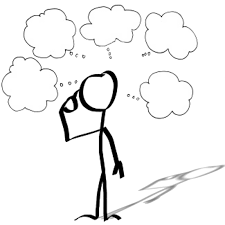
And I believe that other people can do this too. You need to understand that you are not your thoughts. Thoughts are just chemical impulses. Just like the hintergedanken makes a chemical impulse in your brain when you feel the anxiety. You’re so accustomed to racing thoughts, a racing heartbeat, racing breath, that it just happens naturally, and you don’t have time to step back and realize that is not you.
I’m offering you a solution today. You can step back and say, “I’m not my anxiety. I’m not my thoughts, good or bad. I’m something more than that.” When you start taking this seriously and start to look at this, things will start to change.
For more information, visit www.TalkSober.com.
20 Reasons Why I Drank Alcohol
20 Reasons Why I Drank Alcohol And The Reason I Stopped — Talk Sober at YouTube.com.
Today I’d like to go over a paper that I found in one of my notebooks. It’s titled, “20 Reasons That I Drank, and the One Reason I Stopped Drinking”. (I added the reason that I stopped drinking years later.)
This was a list that my therapist had me compile, because she was trying to help me stop drinking. So here are the 20 reasons that I said I drank.

1. Relax
Number one was to relax. At the end of a long day, it was really hard for me to sit back and relax, because there were so many things to do. I found that with a couple of drinks, I could relax and chill out, and usually fall asleep on the couch, which was pretty relaxing.
2. Shut Off Thoughts
Number two was to shut off my thoughts. You see, back when I was drinking, I was plagued with overwhelming thoughts. I would think about things I said, things I did, what I didn’t say, what I didn’t do. I would think about work and things that had to be done. I would drink to shut these thoughts up, because I didn’t know another way.
I even went into therapy. And I remember there was this Zen relaxing meditation guy as my therapist. I wanted him to spit out the answer to my problem, but he never did. He probably did have the answer, but I couldn’t shut my thoughts off long enough to actually listen.
3. Cope with Eating Disorder
I was unable to eat. Some of you might be able to relate to this. I was unable to eat. You see, when I was going through all my mental challenges and all my struggles, I wasn’t able to eat in front of others. Sometimes I wasn’t even able to eat in front of myself. I dealt with an eating disorder early in life, because I was abused with food.
I would go to a restaurant to eat my lunch, because I liked to go to lunch every day by myself and collect my thoughts. And in order to be able to eat, I thought I had to have two or three beers or drinks, or whatever it was. What would usually end up happening is that I would have too many drinks, and I’d be kind of useless the rest of the day.
4. Lower My Anxiety
Number four was a big one. The fourth reason I drank was to lower my anxiety. I was a very anxious person, especially when I left the house. I was always wiry, always acted like I had about 50 cups of coffee, even though I only had half a cup. And I couldn’t sit still. I always thought everyone was watching me. I always thought everything was about me. I was jittery. If I got up to speak in front of people, I was anxious. And so I drank to lower my anxiety.
5. Enjoy the Taste
Five was a big one for me. This was a tough one to give up when I finally decided to stop drinking, and that was that I liked the taste. All the microbrews, all the different beers, all the stuff out there was really good, and I liked it, and I enjoyed it, and it made me feel good.
But towards the end of my drinking, that all started to taste the same. So I switched over to vodka. I absolutely detest vodka, but I drank it because it was easier to hide in different drinks than the other stuff.
![]()
6. Enjoy While Cooking
Another one was that I liked to enjoy it while cooking. I would always cook with wine. Sometimes it ended up in the food, sometimes it didn’t. But nevertheless, I liked to relax and cook and everything like that.
7. Help with Sleep
This one is probably a big one for a lot of people. If you have racing thoughts, and you’re kind of an anxious person, it’s very difficult to go to bed at night. You can’t fall asleep, and it’s just tough. So I would drink a few drinks to help me fall asleep.
And you know, sometimes I would drink a few too many, and then I’d wake up in the middle of the night, and my cycle of sleep would never be normal. But nevertheless, that was one of the things that I thought drinking helped me with.
8. Deal with False Guilt
I was always a guilty person. I grew up in the church, where they said, “If you think about doing this, then you’re terrible. If this thought crosses your mind, you’re terrible.”
I would feel really guilty, like I was a bad person. I would have this guilt about things that I thought about, things that I did, things that I thought I did but didn’t do. Because when you drink to excess, your memory gets all messed up, and you don’t really know what’s real and what’s fake. You’re kind of in a dream world.
The though part about dealing with the guilt is that when you first start drinking for the day, the guilt gets worse, and it doesn’t really go away until you completely pass out. And then you wake up the next day with even more guilt. Which means it gets worse. And it’s a huge cycle. I would go through these three-week cycles where I would drink to get rid of the guilt, but it didn’t work anymore.
9. Focus on Work
Number nine was to be able to focus on work. You see, in my job I was self-employed, which means I didn’t really have anyone telling me to do things. I had to figure it all out on my own, and I had to go do it. And being an anxious, wiry, person, I felt like I wasn’t able to sit down and actually focus. I thought about a million different things and I started a million projects, but I never finished one. I felt like alcohol helped me slow down and actually get things done. And for a while, it kind of did that all right.
10. Calm Reactionary Feelings
I was always living in a reactive mode. If something happened to me, if someone called me a name, if someone said something that irritated me, if we did poorly at work, I would get all flustered and react, instead of responding and slowing down and calculating. I was always reacting like a frightened child, always on the attack. I would be less reactive if I drank. I’d be able to slow down and calculate.
Now of course, I didn’t always say the things that I meant, or say the things that I wanted to say while I was drinking. But it made me a little less reactive. It allowed me to slow down.

11. I’m More Fun When I Drink
When I drank, I thought I was a lot more fun. I would go out to my business meetings, and I’d go dancing, and I’d drink. And you know, you get this vision in your mind that you’re the dancing king. Sometimes I ended up being the dancing king, and sometimes I ended up being the dancing fool. But nevertheless, I thought that I couldn’t have fun without alcohol. I thought that I was a lot more fun with alcohol.
Without drinking, I thought I wouldn’t be a fun person. I’d be this boring guy in the corner with nothing to do.
But over time, I actually found that it’s more fun to be sober, because sober people actually remember things.
12. Self-Absorbed Loathing
Number twelve is self-absorbed loathing—the narcissistic way of feeling better rather than being better. This is an interesting one. You might wonder why someone would drink to induce self-loathing and what the benefit would be. Well, when you deal with alcoholism and you have a touch of narcissism, self-loathing was kind of like paying your dues. I would do bad things, and then I would self-loathe about bad things, which made me feel like I was paying for my sins. Which in actuality, it’s not. It’s just self-torture, self-punishment without the desire to do better next time.
I knew that next time, I would probably end up drinking. I knew I would probably be a complete idiot, and probably hurt the ones I love again. But if I self-loathed about it, I thought, wasn’t that kind of paying for it? I would have days of self-loathing and depression and things like that. Even though it wasn’t productive, even though it wasn’t good in my mind, I felt like at least I was paying for it.
13. Being the Victim
Number thirteen was that it was easy to be a victim. Early in life, I learned from my family that if you ever got in some kind of trouble—legal trouble, money trouble, whatever it was—you should find a way to weasel out of it. And for me, it was easy to be a victim. When I drank, I could drink and say my money problems were because of the IRS or the government, or my money problems were because of my students that didn’t do enough, of because of this, or because of that. It was never because I just didn’t do what I was supposed to do. It was never just because sometimes I was lazy, or sometimes I didn’t work hard enough.
It was easy for me to be a victim. I was a victim of my life, a victim of society, of the government. Everything was against me, as if the world cared that much about me. I would drink and become the victim, and it would make it easier, because then nothing would be my fault.
14. It’s Socially Acceptable
One of the reasons I drank was because it was socially acceptable. I was an adult, there was an adult beverage, and everyone accepted it. I drank during football games, during hockey games, during lunch. I had it out everywhere and anywhere, and it was socially acceptable.
15. Depression
I drank to get rid of depression. When you get depressed, you don’t feel like you need to do anything. You just wallow in it, and it’s easy. Just like being a victim, it’s easy to be depressed. It’s easy to just kind of stop and do nothing.

16. Escape
Number sixteen was that I drank to escape. I drank to escape my life, the person I had become, the person I didn’t want to be. I drank to escape the thoughts of the person I wanted to be, but who I wasn’t being. I drank to escape just about everything—feelings, fights, everything. I wanted to get away. I didn’t want to think about it. I didn’t want to feel. I wanted to be numb. I wanted to go to sleep. I wished that it would just make me pass out for a lot longer than it actually did.
But nevertheless, I drank to escape. I was running and running, and unfortunately the alcohol was following close behind. It wasn’t allowing me to escape, and it left me in this huge cycle.
17. Slow Down
Number seventeen was that I drank to slow down. I’m kind of hyper, and I would drink to slow down. Everyone in my life was kind of chilled out, and I was kind of a wiry dude. I needed it to slow down and relax. And I liked the way that it felt when I was slowed down.
18. Motivation
Number twenty was to be motivated. I felt like drinking was like rolling up my sleeves. I’d take my box of beer into my office, which was built in the backyard, and I’d go to work. That beer was my suitcase. One drink, and I’d be motivated. I’d be ready to go.
19. Feel Good
Number nineteen was because I felt good. I drank to feel good. I didn’t feel good during the day when I woke up. I was hungover every day, and I drank early in the morning to deal with those feelings, because I didn’t want to deal with them.
20. An Alcoholic in a Self-Made Prison
I drank because I had to drink. There was no choice. Once I was in the cycle, once I was in the death grip, I had to have it. There was no other way to cope with life without having alcohol.
Those are the twenty reasons that I drank. This is a list I wrote a few years ago. The one reason I don’t drink anymore is because none of that stuff really works. All twenty of the reasons might seem like they work. But when you continue to drink, these things get worse.
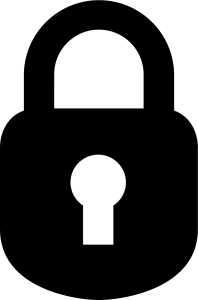
When I drank to lower my anxiety, I would overcompensate. And then the next day, I would be more anxious than before. I would require more alcohol. When I drank to shut off my thoughts, my brain would speed up without alcohol and my thoughts would be racing like crazy.
All of this stuff doesn’t actually work for an alcoholic. That’s why I don’t drink. I don’t want to be in that delusional world, thinking that alcohol is the cure-all for my problems. And if I kept drinking, I would have absolutely ended up dead. That was the path I was on.
So the reason that I don’t drink today is because I know that I’m an alcoholic, and I know what my brain does. Normal people don’t sit around thinking about the 20 reasons that they drink, because they don’t have problems with drinking. They just drink normally.
Alcoholics, on the other hand, drink because they want to do something. It does something for them, more so than the average person.
And what I want to tell you today is that all the reasons you might drink, all the reasons you think drinking is helping you and doing good for you, those are not real. They don’t really work that way. They might seem like they help for a little bit, but they will hurt you in the long run.
For more information, visit www.TalkSober.com.
Addictive Personality Disorder, Alcoholism, and OCD
CR@ZY! – Addictive Personality Disorder, Alcoholism, And OCD… — Talk Sober at YouTube.com.
As many of you probably know, I started trying to get sober back in 2013. I actually started getting sober in 2014 towards the middle of the year. And one of the things that you’ll notice about me as a person is that I suffer from having crazy thoughts. I have OCD, which is not uncommon for many people dealing with addiction and alcoholism and things like that.
And because of that OCD, I like to figure out what’s wrong with things. I like to figure out how to fix things. It’s kind of an obsession of mine to be able to do that. When I went into rehab, I kept a notebook of all my notes and everything from the time when I first started trying to get sober. I had actually started off using them for business ideas, so half of them were for business, but the other half were all about the different things I was thinking about, the struggles that I had, and things like that.
What I like to do is try to reverse-engineer things and ask, “Where does this come from?” So it made me wonder. Could someone have predicted, based on these notebooks, that I would become a full-blown alcoholic, be suicidal, and have all that stuff go on? Could someone have predicted it? And is there a place where someone could have intercepted it, intervened, and asked what was going on?
What Was Going On?

In one of my journals, I was talking about anxiety disorders, panic disorders, and OCD, and things like that. And this leads me to believe that there are different things that we can look at with the alcoholic, the addict, and different telltale signs.
For me, when I was drinking, I felt alone. I felt like I was there in my house and no one, not my family, not even my wife, no one could understand what I was going through. No one could empathize. I thought that all these things were happening just to me, like no one could relate. I asked myself, “What is wrong with me?”
As I look at my notes, I ask myself what it was that I was struggling with. I wasn’t able to let my thoughts stop. I would sit there at night, trying to go to bed after a day of work, and my mind wouldn’t shut off. I would think about different things. Bills that had to be paid, employees that were working for me. Did I shut the office? Did I shut the back door? Is there enough to drink tomorrow?
These thoughts were going and going, and I didn’t know how to shut them off, other than by drinking.
I was also dealing with the OCD. I was checking everything, making sure everything was okay. At the time (and still today) I made my living online, and I thought to myself, “Well, the internet never sleeps, so I should be awake fixing my money problems.”
I had serious guilt, too. There was serious guilt over things that I did, things that I thought I did, things that I didn’t do, things that I thought about. I would have guilt over just about anything. And I would take that guilt and say, “If I thought that, that must mean I’m bad.”
When we look at these traits, we can think about the idea of an addictive personality. Are there people that are predisposed to becoming an addict?
In my family, I have three brothers, and all of us have struggled with addiction of some sort, with some of us struggling more than others. But all four of us have that in our way. And it’s all over the family. So we can look at this and ask, “Is it genetic?”
We can also ask, “Is it something that happens with your thoughts?” I was definitely prone to depression. I was like the kind of person that would purposely go in my office and put sad music on, get depressed and get sad, and then wonder why the hell I was
depressed and sad, as if I didn’t really know.
So we can look at the inability to stop thoughts, the OCD, the guilt, being prone to depression, the anxiety, all of that stuff that was going on with me. And we still have the question, “What was wrong with me?”
I went so far as to try and find rehabs that were dealing with certain types of
neuroplasticity and brain science so that they could figure me out. I went to certain types of therapy, and nothing seemed to help. I had therapists who told me point blank,
“You don’t have an alcohol problem.” Which was pretty much like saying, “Here’s a bottle. Go finish it. You now have the ability to tell everyone you don’t have a problem.” (Even though you do.)
The Path of Least Resistance

The fact of the matter is that the issue comes from our thoughts. When you think something, the thought comes and naturally tries to take the path of least resistance. It’s like water. If you ever watch water in your backyard, and you watch when it rains, the water goes down a path that it’s gone down before. Why? Because it’s easier. It digs that groove, digs the groove, digs the groove. And over time, it gets so easy, it’s like a little waterslide.
The brain is like that. It’s going to take the path of least resistance. The thought is going to go through the path of least resistance. You’ve trained yourself so many times to think in certain ways. Just like when I would go in my office and turn the sad music on, the process would start, because that was the easiest way for my brain to work.
It Doesn’t Matter
After looking at my notes, I started to learn that it doesn’t really matter where it comes from. It doesn’t matter if it’s in the family. It doesn’t matter if its genetic, or if it’s something in brain science.
When I was going through all this stuff, and going through all my notes, I thought that the thoughts were just something that happened to me. I was kind of like a victim of them. But what I learned is that over time, these are just things that happen.
We’re not victims of our thoughts. They’re not good, they’re not bad. They’re just a chemical response in our brains, just something that happens.
What We Need to Do
So now, what we need to do is learn how to take our thoughts and align them with things that are going to be more helpful for us.
First and foremost, you have to stop worrying about what’s wrong with you. You have to start dealing with the problem, which is drinking. Because you might not see it now, but every drink, every time you go back there, it starts the negative thought pattern. It dips you down into it, and it’s kind of automatic.
So it’s time to stop worrying about what’s wrong with you, and time to start focusing on new thought patterns. It won’t be easy, because these are deep grooves, and they’re always going to be there. But you can learn to think a different way and make it easier to bypass the groove. You can learn how to take different paths with our thoughts. You just have to start now and do it over and over again. You’ve taught your mind to say that drinking is the path of least resistance. But you need to think about these thoughts, and stop them, and start intercepting them. You need to focus.
You’re going to start to watch these things, and instead of saying, “What’s wrong with me? I better go drink,” or, “What’s wrong with me? I need to go do this,” You’ll start to be in charge.

I once heard this said very wisely. The mind is like a lens, and you get what you focus on. If you ask yourself, “What’s wrong with me?” You’re going to get an answer, even if you don’t like it. If instead you ask, “How can I feel better?” You’re going to get an answer, and you’ll probably like it.
Over on my site at www.TalkSober.com/notes, if you put your name and email in the box, you can get my notes and learn more about this stuff. Because I don’t want you to have to go through it the hard way like I did. Chances are, it’s been hard enough on you already, and we don’t want to wait until it gets worse. You want to start to do this stuff now and start feeling better, starting today.
For more information, visit www.TalkSober.com.
The Difference Between Alcohol Abuse and Being an Alcoholic
The Difference Between Alcohol Abuse and Being an Alcoholic — Talk Sober at YouTube.com.
Today we’re talking about the difference between alcohol abuse and being an alcoholic. I’ll talk to you about my personal story and show you what the difference is between someone who just drinks like a problem drinker and a full-on alcoholic.
First, I’d like to disclaimer this information by saying I’m not a doctor, and the advice that I give you should never be mistaken for medical advice. Always consult your medical practitioner when you’re doing medical stuff, especially if you’re detoxing from alcohol. If you think you have a problem, you should always get help the help you need.

You see, I wasn’t the typical drinker, like someone I thought an alcoholic would be. At the time, I was able to hold down a job, I was able to look pretty good on the outside. I didn’t think I was that guy. I just enjoyed my drink every day, and the amount that I consumed was quite a bit. From the outside, I looked okay, although I had a lot of personal issues, where I had been getting hurt while drinking, and had issues of being unable to stop drinking, things like that.
So, I sought out some help. I thought, “What’s the deal? What’s going on? How can I get help?”
At first, I thought it was a therapy issue. I though, “Well, if I could talk to a therapist, and get to the bottom of the things that plagued a little Marcus as a child, then maybe I wouldn’t drink so much. Or I wouldn’t feel the need to do it. I thought it was mainly a therapeutic problem. I was running from something, or something was wrong with me, or maybe it was something that had some letters to it that they could diagnose, or whatever it could be.
I sought out many different therapists, all of whom told me, “you misuse alcohol,” or “you have a little problem, but you’re not an alcoholic. You don’t need to get help as if you were an alcoholic.” I even went and found hypnotherapists that would say, “let’s hypnotize you to hate alcohol.”
Or I went to the regular counselors who said, “Here’s what you need to do,” but no one ever said, “Hey Marcus, you are an alcoholic, and you need help.”
That’s why I’m creating this blog post. It’s for you to get past all the myths. If these people hadn’t told me that it was okay, or that I didn’t have a problem, I probably wouldn’t have had to go through all the things I went through.
I ended up getting in trouble with my job, trouble with finances, blowing close to $100,000 on various things, trying to get better, going crazy, having a 5150 suicide attempt, being taken by the cops, and all kinds of things like that. A lot of that probably could have been avoided had someone explained to me what being an alcoholic is, and what was going on.
I had this question in my mind, saying “What is wrong with me? There’s something wrong, I can’t quit, I can’t stop.” And to tell an alcoholic that’s it’s just a little drinking problem is pretty much like handing him another drink.
And that’s exactly what they want. The insanity of every drinker is the desire to want to drink again. We always think, “Well, maybe one day I’ll be able to have it,” or “maybe I could just have one,” or “maybe I could just have two,” or “maybe I could just drink on the weekdays,” or “maybe not at work,” or whatever it is. And it’s the insanity that’s going along with everything, which is what leads us to the alcoholic insanity. Despite all the problems it brings, we still want to drink again.
So let’s talk about the difference between the problem drinker and the alcoholic.
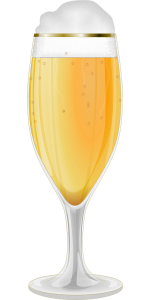
Natter what people tell you, the main difference between the two is the ability to stop drinking. You have to ask: “Can I stop? Has this taken over so much that I can’t stop, and my body now thinks it needs it?” That’s what chemical dependency is about.
For me, this was a very, very difficult question. I looked good on the outside, and when it came time to try to stop, I was like two people. There was this one person who could make it a couple of days, or a couple of weeks, without drinking. And there’s this other person who had to have it. And I felt like they were always at war with each other. And after I was able to string together a week, or two weeks, or whatever it was, at that time I found myself going back again. It was almost like I was on autopilot. There was something in me saying I had to have it.
A lot of people think that alcoholics might have legal problems, or financial problems, or various health problems, and different stuff like that. But all of these can happen whether you’re just a problem drinker or if you’re an alcoholic.
Oftentimes your alcoholism could be masquerading as a sheep, or as a wolf in sheep’s clothing. You might look okay on the outside, but on the inside, you have that voice that’s saying you have to drink.
So you don’t just want to ask yourself what the difference is between a problem drinker and an alcoholic. You want to ask, “What is controlling you?” If someone else is driving the ship, and you can’t seem to stop, and everything in your mind is hijacked and hardwired to think that you need this alcohol to survive, chances are you are an alcoholic.
And it doesn’t matter how many skeletons are in your closet, or what happened to you when you were a kid, or if there are coexisting conditions. Because my guess is if you’re like me, this alcoholism is causing a lot of the problems that you think are caused by outside sources.
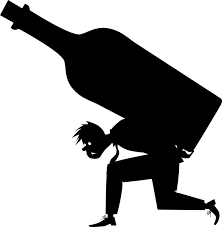
Now I’m going to ask you a point-blank question. It’s the question that I wish someone would have asked me years ago. The question is this: Do you feel like you’re drowning in this problem? Do you feel like you need help?
If you do feel like you need help, go to www.talksober.com/help. I have some videos and tools to help you get through this issue. No matter what the consequences are, no matter how bad you’ve gotten, or how bad your life might seem, there is hope on the other side.
If you would have told me three years ago when I was being handcuffed and taken away with a suicide attempt that today I’d be living a sober life and feeling okay, and living every day without alcohol, I would have thought you were crazy. Because I saw no way out. Everything was piling up, and no matter what I tried, I couldn’t stop.
Because here I was, I had made over five million dollars in my career, and I had a house and had a family, and everything looked good on the outside. I wasn’t your typical in-the-street kind of guy. And the fact of the matter is that this affects anyone. Broke people, multi-millionaires, happy people, sad people. It’s not partial to one group.
If you think you’re an alcoholic, you need to get help. Go to www/talksober.com/help, check out my tools, and we help you get and stay sober once and for all.
For more information, go to www.TalkSober.com.
Why Can’t I Stop Drinking?
Why Can’t I Stop Drinking Alcohol? Learn the Truth! — Talk Sober at YouTube.com.
Today we’re going to answer the question, “Why can’t I stop drinking?”
To answer this question, we’re looking at a story. There was once a scientist on a farm, and his name was Pavlov. He tried an experiment with his dogs and a bell. Each time Pavlov fed his dogs, he rang a bell first. He noticed that over time, he just had to ring the bell, and they’d come hungry and ready to eat.
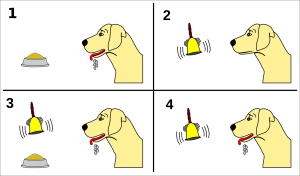
What was happening here? There was a command getting embedded in the dogs’ brain. I was like a little bolt of lightning going off. Over and over, the bell would embed this command, and the dogs would respond with the salivating, and the hyperactivity, and the desire for food. The dogs got hungry even if they had just eaten. This is what we call conditioning. The dogs were conditioned by the ringing of the bell to desire something, which was the food.
Here, you have what’s called the trigger. This is the event. It’s the ringing of the bell, or whatever it may be. There are triggers in our own life as well. Except, rather than something as simple as a bell, and a response of being hungry, our responses may be deeply embedded in our brains.
For example, when I was a kid, I used to get yelled at often by one of my step parents. It was very threatening, and it scared me a lot. When you’re a kid and you get yelled at, it’s a traumatic experience, and that trauma gets ingrained in your brain.
Have you ever noticed how, when something happens and you’re really afraid or really excited, things are really vivid? You remember the smell of something, or the taste of something, or the way things look and sound. It’s the same thing happening.
When I was getting yelled at, I would look at facial expressions, I would look for warning signs. I would embed the way something looked, or the way a voice sounded. And all of these things put little zaps in my brain of what to watch out for. So now, if I’m sitting there talking to someone who is not a threat, but they start to move their face in a way that that person did when they yelled at me, it can produce a result of fear, or a need to leave, or something like that.
Now, the same thing is happening with alcoholism. All day, your brain looks for things to remind it of other things in its database. Those things may be triggers, like fear or hunger or sadness. Whatever it may be, those triggers bring up responses that are embedded. So if someone turns their eyes a certain way, and you start to feel afraid, there seems to be no explanation of what’s going on. So you say, “I need to shut that off, I need to get away from that feeling. I need to drink.”
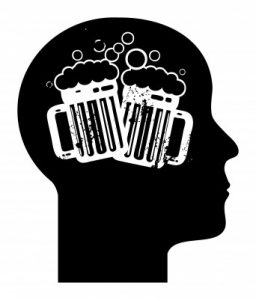
You’re getting conditioned, just like Pavlov’s dogs. And if your brain is getting zapped all over with these certain things, then you have to watch out. These things build up in your mind over the years. When you become an adult, now you have all these things going on deep inside your brain. Your brain is constantly searching your environment for these things. Whether it’s stress about money, whether it’s an argument with your spouse, whether it’s stress at work. Your brain is saying, “in order to relax, I need this.” Which is why a lot of people call chemical dependency a disease.
There’s something in brain science called neuroplasticity. That means that your brain is like plastic. It’s pliable, it’s flexible, it changes. When you have someone who is addicted to alcohol, chances are they are addicted because there are lots and lots of triggers. Just like how Pavlov’s dogs were triggered to desire food at the ring of a bell, you are now triggered to desire alcohol for just about anything.
In addition to all these triggers, and all these things building up in your mind, you are now also controlled by the alcohol. It’s as if the alcohol has quite literally hijacked your brain. So when everything is triggering you, you feel like you need this to survive. So even when you do try to quit, these triggers are going on behind the scenes.
You’re not going crazy. This is quite simply what happens to an alcoholic. This is natural. But it’s time to get help before it gets worse. Understanding your brain and
understanding why these things are going on will help you. Because I want to let you in on a secret: there is a bypass button. Once you know that this is happening, you
can hit that bypass button to stop yourself in between cycles, and you can stop yourself from drinking.
This is what is going to break the shackles of addiction—being able to intercept, and pause, and stop. As you start to push that button, it will start to zap your brain in new ways, saying, “You know what? I don’t need this. There is another way. I don’t need to have this to quiet my thoughts. I don’t need to have this to calm my anxiety. I don’t need this to relax, or to work, or to do whatever it is.”
When I was drinking, I thought that I was my brain, I was my mind, I was my thoughts. But as I learned throughout the years of knowing that I’ll be okay without drinking, I started to learn that that wasn’t the truth. My thoughts and my mind are what my brain does. I’m not the sum of my thoughts. I’m not the sum of the things that I do, or the sum of the things that were done to me. I’m quite simply a human living through life, just like the rest of us.
For more information, visit www.TalkSober.com.
The Serenity Prayer for Acceptance and Change in Alcohol Recovery
The Serenity Prayer for Acceptance and Change in Alcohol Recovery — Talk Sober at YouTube.com.
Today I want to talk to you about the Serenity Prayer. What’s the nature of this prayer, and how can it help us stay sober?
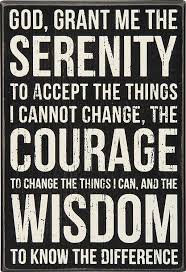
The Roots of the Serenity Prayer
You know the one. “God, grant me the serenity to accept the things I cannot change, the courage to change the things I can, and the wisdom to know the difference.”
The Serenity Prayer came from a man named Reinhold Niebuhr, who lived from the 1870s to the 1950s. This prayer is very old, but the roots of the prayer are actually older than that, and they have nothing to do with Christianity. It comes from ancient Greece, it and started with the Stoics.
Now, the Stoics were very big on taking a look at your life and looking at everything as a whole. Often times in modern culture, everything gets fragmented. The Stoics recognized that this was happening back then as well. And they were smart people. They knew how to break things down and make sense of everything. They said to separate life into the things that we can’t change.
Recovery Culture
The AA recovery culture of today’s modern world started way back in the early 1900s. And back in that time, they equated recovery with Christianity, the Bible, the spiritual, and things like that. Back then, people looked at a lot of different prayers.
A lot of western thought, and our current culture, believes that we need to go out there and deliberately change every single thing. We’re the masters of our destiny, the creators of our world. We manifest our thoughts, and all of this mumbo jumbo that really doesn’t work. The current thought process of western culture is the idea that we control everything. This will trap us, until we’re digging ourselves out of a ditch. Because we have to realize what we can and can’t control.
Back when I was active in my addiction, I was a little more narcissistic than I am right now. Back then, I thought I could control everything. I thought I could control money, make people think the way I wanted, make people see my point of view. I thought I could change everything. I was trying to control every aspect of my reality.
What We Cannot Change
And let’s face it: As alcoholics, and addicts, we have to ask ourselves: what are the things that we cannot change? We can’t change other people. The best we can do is ask for their cooperation. We can’t change the weather. We can’t change our health. We start to realize that there’s a lot in life that we cannot change.
You might know that you get mad about things you can’t change. How is that working for you? If you’re still drinking over every little bump in the road, carrying the thoughts of what happened to you two hours ago, or even two years ago, how is that working for you?
What We Can Change
What about this word serenity? You’ve heard this over and over, in lots of different places. What does this mean? Does it mean we just need to be calm and collected and chilled out for now? Or is it a life process? I believe it’s actually a life process. Serenity comes by recognizing what you can’t change, and what you can, and knowing the difference. It comes by asking, “What can’t I do? What can I do?”
But there are some things we can change. I can change my business, I can change my direction, I can change the way I look at things. Most important, I can change my perspective.
Perspective is the number one thing that got me sober back then, and keeps me sober today. That’s because it changes the way I look at things. Instead of having to get inside every argument, having to deal with everything as it comes, I can step back and ask myself: “what are the things I can’t change, what are the things I can change, and can I have the wisdom to know the difference?” The key in this prayer is the wisdom to know the difference.
I know what it was like. I used to have to drink. I’d say, “Today, I’m not going to drink.” Then someone would argue with me, or someone would cut me off in traffic, and it would make me angry. And I was living my life as if life happened to me. As if I was the only person in the world.
But is life really happening to you, or is it happening to everyone? Are these things that are coming at you, are they things that you can rise above? Things that you can look at and take in stride?
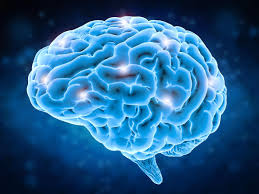
Conclusion
What’s the point of getting argumentative and what’s the point of stewing about it?
What are the things in life that we can’t change that we carry with us? What are these stories that we carry with us? What are these irritations? What are these things that cause us to not be serene, and not be calm? Why are we carrying them with us? Why do we continue to keep these things going on? Why do we continuously torture ourselves with things that we can’t change?
We can’t control the thoughts, actions, beliefs, motives, desires, words, and outcomes of other people. You can’t change the past, and you can’t change what you did in the past.
All we can do is control what we do, and control our response. You can’t change who you were in the past, but I can tell you, you’re a different person right now. You can’t change what happened back then. But knowing that you can’t change it makes all the difference, because it changes the way that you think. It changes your perspective and tell you that you’ll be okay right now.
If you have to drink to make it through life, it’s time to change your perspective. It’s time to change your perspective of things you cannot change, and things you can change, and get the wisdom to know the difference. Start to understand this. When something happens and you want to go drink, pause and think about what you can and cannot change in the situation. The more you do this, the more you train yourself to think this way, the better you’ll start to feel.
For more information, visit www.TalkSober.com.
Overcoming Negative Thoughts – Alcohol Relapse Prevention
Overcoming Negative Thoughts : Alcohol Relapse Prevention — affiliatemarketingmc at YouTube.com
What happens to you when things go bad? What happens when your girlfriend breaks up with you and you’re trying to be sober? Or you lose your job? Or someone passes or something crazy happens in your life? What do you do?
The normal inclination for an addict is to go back to the source—the drinking, or whatever it may be.
Today we’ll be talking about two different things: content of the mind and structure of the mind. I believe if you can understand what’s going on in your mind, and if you can understand what’s going on with your emotions, then this will make a lot more sense.
Content of the Mind
When something bad happens to you, your mind will go crazy trying to think of different repercussions. It will think, “Okay, I lost my job, so I’m going to be broke. I’m going to be on the street. I’m not going to have anything to eat. I’ll lose my house. My car will get repoed, and everything will be terrible. Everyone will stand around, pointing at me and calling me a loser.” You’ll feel sad and depressed.
This is all what we call content of the mind. The content of your mind is the audible thoughts are going through your mind.

Structure of the Mind
There is something else at play here too, and that’s the structure of the mind. The structure of the mind doesn’t care about the content. The structure doesn’t care what you’re thinking about. It’s running a process, just like your computer. There’s a process it goes through, and whatever you feed it, good or bad, it’s going to take that process.
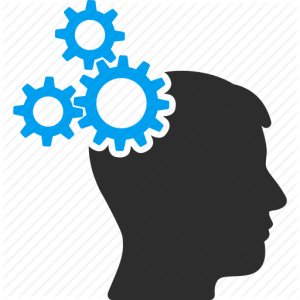
Affect of Both
When bad things happen to some people, they may not overall care too much. The contents of the mind are not going to matter too much, or affect them too much.
However, when you’re dealing with an addict, or someone prone to depression or anxiety, the structure of the mind can have a much bigger affect. You might get bad circumstances, and then your brain goes and catastrophizes things. It starts running loops.
One of my favorite quotes is by Alan Watts, who says “You can worry about anything, if you’re the worrying type.” What that means is that, if you’re the type of person that worries, no matter what happens you’re going to worry. You might think, “Well, my lawns not growing. That means there’s not enough water, and that means there’s a drought, and that means we’re all going to die.” It’s just what’s going to happen.
When you think about the worrying type, that is the structure of the mind. That’s how your mind works. The content doesn’t change this.
The Problem
The problem is that here in Western civilization, as opposed to Eastern civilization, we’re focused mostly on the content of the mind. We’re focused on the thoughts themselves. So when something bad happens and we’re going through these loops, the loops keep running. We try to do something about the content of the mind. But more bad stuff happens, and it leads us back to drinking, or using, or what I call a relapse of the mind.
Our mind goes back to the old thought pattern. That’s thinking, “I went through a break up, it’s terrible, nobody loves me, everybody hates me.” It’s a loop, and you feel like crap, and then you go and get a drink. Then you go through the actual physical relapse.
You dwell on the thoughts, the content of the mind, rather than looking at the process, the structure of the mind. If you could see that a process is going on, you’d see that the content isn’t as big as you make it up in your mind. You have the bad circumstance and it’s going to run that loop, and it never really ends. It will just keep going, and that’s what your mind does. That’s how your mind works–that’s the structure of your mind.

Fixing the Problem
We need to start intercepting and realizing that the process is happening. Start looking at it for what it is. Instead of diving into the content, think about the process. If we understand that it’s what our brain does, that’s how it processes stuff, then we don’t have to dive into or explain the content. We can just allow it to happen.
We all know in our rational mind that one little breakup, or one little job loss, is not going to be the end of the world. Sure, it might hurt. It might suck. Yeah, you might not be able to afford the car payment or whatever, but the fact of the matter is, is you’re going to be okay. We know that no matter how bad things get, we don’t need to drink again. But behind the scenes, this is going on. We focus on the content, and our mind loops out of control.
So, let’s decide to focus on the structure. Ask yourself, “How do I change the structure of my mind? How do I change the path that my thoughts go down?”
First, if you just pay attention and realize that it’s happening, you’ll start to understand it. And then you’ll be able to stop. You can take a breath and tell yourself you won’t need to drink, or pick up, or do whatever makes you an addict. Instead, you can look at the two different things going on in your mind. You can recognize that this is the content.
What is the content? If we look at it rationally, what’s going on?
“Well, I lost my job. You know, there’s other jobs I can get. There’s tons of them out there, regardless of what the news says. There are lots of jobs out there, and there’s lots of opportunity.”
Don’t give in to that loop, thinking, “catastrophe = panic = fear.” Instead, look at it rationally. Say to yourself, “Well, here’s the content, and here’s what my brain would usually do. Instead, I’m choosing to interrupt it by doing something else.”

Emotion is based on motion. When you get up, when you do something, it’s like energy in motion. When you do something to break the pattern, whether it’s taking a walk, reading a book, making a video, going to meeting, or whatever it is, you’re going to interrupt that. You’re going to start to feel different.
Don’t get down on yourself for the fact that the structure of the mind has been distorted, and don’t get frustrated by the content. We all have content in our mind. There are certain people–you know them, I know them. No matter what happens, they spin it bad.
Then there are other people who say, “Well, I lost my job, but there are 10 more opportunities. It was just a blessing in disguise.” And you’re like, “shut the hell up.”
The fact of the matter is, they just have a different working of the mind. They have a different process that they run.
Up until now, you might be running your process like I did, where the process was like, “Well, bad circumstances = get depressed = go down the dark hole == feel this way = explain it = what is wrong with me?”
Nothing is wrong with you. What’s happening is there’s content, and then there’s process. Separate them, and you’ll start to understand how your mind works, how to get yourself out of depression and how to understand what’s really going on with your addiction, with your anxiety and with your life. Watch out for the content of the mind and the structure of the mind, because often times one little tiny thing will blow up a ton of content in your mind, which will run a process, which will make you feel bad.
Let’s start looking at the difference, and let’s start feeling good.
For more information, visit www.TalkSober.com.